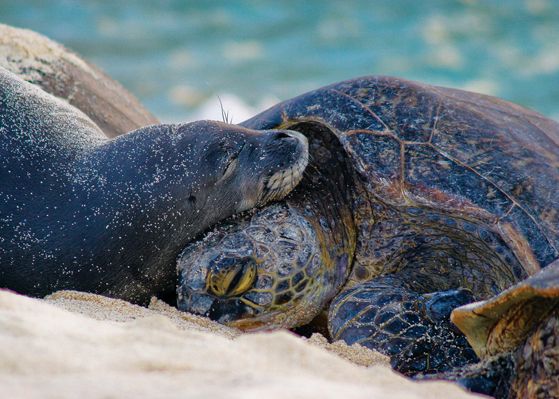By Giuseppe Porcaro, Head of Communications and Events at Bruegel. Originally published at Bruegel: " The “Internet of Things” Will Transform Policymaking (and Democracy)"
Any device with an on-and-off switch can (and should) be connected to the Internet. This is the basic idea of the industrial internet, also referred to as the ‘internet of things’. Forecasts indicate that around 6.4 billion connected devices will be in use worldwide by the end of 2016, up 30% from 2015. The total will reach 20.8 billion by 2020...
One immediate worry is the risk that politicians will rely too heavily on unaccountable high-tech companies, purchasing outcomes delivered through services they do not understand. How can we address the associated concerns?
How a Goldman Sachs puppet promoted another Goldman Sachs puppet as the PM of Greece the unbalanced evolution of homo sapiens
In the 1940s, a British doctor named Jeremy Morris noticed something strange about London Transport workers. Men who drove buses, and thus were sitting most of the day, had much higher rates of heart disease than their colleagues, the conductors, who constantly climbed up and down stairs on those classic double-decker buses.
Morris, a fitness buff who died in 2009 six months shy of his 100th birthday, later expanded his studies to include British postal workers and civil servants. His pioneering research launched a quest in epidemiology that continues today: to understand the harmful effects of sedentary lifestyles such as sitting at an office desk all day, and how exercise might counteract them.
The latest investigation appeared in The Lancet in July under the headline “update on the global pandemic of physical inactivity”. The journal included a meta-analysis, combining the results of several studies, using data from more than 1m people to determine what amount of exercise would offset the risk of premature mortality from sitting.
According to Ulf Ekelund of the Norwegian School of Sport Sciences in Oslo, the study’s lead author, between 60 and 75 minutes of daily medium to intense activity, such as brisk walking or cycling, “seemed to offset the association between sitting time and mortality”.
When asked if this prescription might be difficult to achieve, Mr Ekelund says: “The average person in Britain watches three hours of television a day. It might be possible to devote a little of that time to exercise.” Even half the recommended amount of exercise, he noted, is associated with a significant reduction in the risk.
People who took five-minute breaks every hour had significantly lower waist circumference
Sitting, it turns out, affects many parts of your body and raises the risk of heart attacks, strokes, type-2 diabetes and other diseases. In addition, sitting all day in a classic C-position, with your head forward and shoulders slumped, can affect breathing and blood flow to the brain.
Since the study was published, commentary has focused on the amount of exercise needed to offset the risks — which is much higher than previous recommendations. For example, the UK’s National Health Service, the American Cancer Society and the American Heart Association all recommend getting 150 minutes a week of moderate intensity activity, or 75 minutes of vigorous exercise. The association’s studies show more than half of the US population fails to achieve that.
“If you’re talking about people who do an hour a day of medium to intense exercise, you’re looking at just 2 per cent of the population,” says Kelly Starrett, a physical therapist in San Francisco and author ofDeskbound, a book on the dangers of long-term sitting and how to counteract them.
Another problem is that the daily hour of exercise in the Lancet research is designed to offset the maximum amount of sitting, which in the study was up to eight hours. But separate research from the USfoundoffice workers are typically sedentary for an average of 13 hours a day — think of time spent commuting in cars or trains, meal times, phone time and leisure time.
Other than formal exercise, there are tactics to reduce the risk of premature death from sitting. Brief interventions, such as standing up from your desk for a few minutes every hour, do improve matters.
“If you break up prolonged sitting, you see a range of beneficial changes,” says Neville Owen, head of the Behavioural Epidemiology Laboratory at Baker IDI Heart and Diabetes Institute in Melbourne, Australia. “Our working hypothesis is that in addition to making sure you do get physical activity every day, breaking up the time you spend sitting means you get sustained benefits over the whole day, because there is going to be some fading of benefits if you exercise in the morning and then sit all day.”
In one study Mr Owen participated in, people who took five-minute breaks every hour were found to have a significantly lower waist circumference, triglycerides and blood glucose levels than a control population. In another study, this time on people with type-2 diabetes, brief bouts of walking every hour reduced the after-meal rise in glucose, insulin and triglycerides. High levels of these can be a risk factor for diabetes and heart disease.
Folding laundry for an hour a day worked nearly as well as exercise
Dr Owen says the main benefit was standing up from a sitting position. “The fact that we don’t faint every time we stand up means that a huge number of biological adaptations are taking place simultaneously, including in our arteries and blood vessels,” he says.

